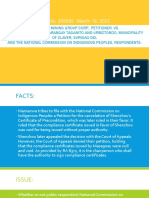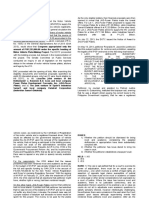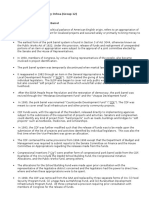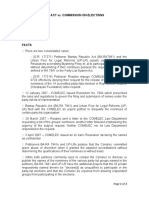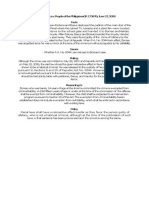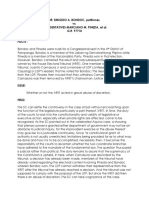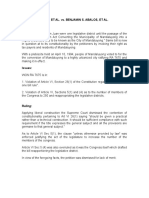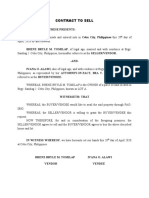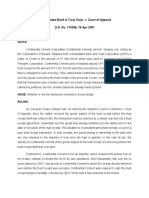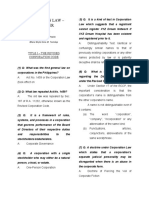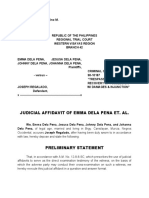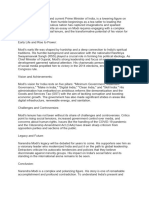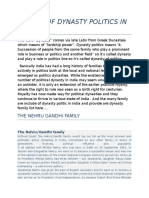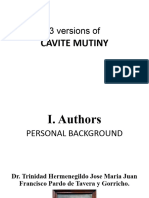Digested by : Tomilap, Bhenz Bryle Nino M.
Shenzhou Mining Group Co. vs. Mamanwa Tribes of Brgy. Taganito
And Urbiztondo ; GR No. 206685; March 16, 2022
Topic: Principle of Non-Delegation of Delegated Powers
Principle: A power once delegated can no longer be re-delegated. The power to
delegate must be granted by the delegating authority, and not unilaterally by the
delegate.
Facts:
In 2010, the Mamanwa Tribes executed a Memorandum of Agreement with
Shenzhou and the National Commission of Indigenous Peoples, which provided for the
exploration, exploitation, and use of mineral resources in Brgy. Cagdianao, Surigao del
Norte. Through such agreement, the Datus were made to believe that Shenzhou was a
bona fide holder of a Mineral Production Sharing Agreement, when in fact it was not.
Instead of Shenzhou, it was Claver Mineral Development Corp. who was the holder
thereof. There was also failure to pay the Mamanwa tribes of their royalty shares on
specific quarters. This prompted the Mamanwa tribes to file with the National
Commission on Indigenous Peoples a Petition for the cancelation of Shenzhou’s
Certificate of Precondition, which was later ruled in their favor. It ruled that the
compliance certificate issued in favor of Shenzhou was void for being issued without
proper authority.
Shenzhou later appealed the decision with the Court of Appeals. However, the
Court of Appeals denied their petition, holding that the compliance certificates issued by
Masagnay were null and void. As provided by RA 8371, it is the chairperson who shall
have the authority to sign compliance certificates.
In 2011, the Commission issued a Resolution, stating that Commissioner
Masagnay was not authorized to sign any compliance certificate under the principle of
potestas delegate non potest delegari. The authority to sign compliance certificates was
already delegated to the National Commission and can no longer be redelegated. The
Court of Appeals also upheld the tribes’ entitlement to royalties as mandated by Article
XII, Section 5 of the Constitution.
Hence, this petition. For their part, Shenzhou argues that the implementing rules
of the Indigenous People’s Rights Act authorizes the National Commission to delegate
their authority to the other commissioners.
Issue: Whether or not Masagnay had authority to sign the compliance certificate as a
de facto officer
Ruling:
� No, Masagnay had no authority to do such act. The power to sign certificates of
compliance had already been delegated by the Commission as a body to the
chairperson of the National Commission on Indigenous Peoples. Such delegation was
later enshrined in the Revised Guidelines.
Section 59 of RA 8371 gave the power to issue certifications to the National
Commission on Indigenous Peoples as a body, and not to any individual member. The
Supreme Court ruled that any ambiguity or vagueness in the delegation must be
resolved in favor of non-delegation. Otherwise, the delegate might abdicate the duty to
perform the task delegated upon them.
Insigne can no longer authorize Masagnay to sign on his behalf, because doing
so would authorize someone whose authority had already been delegated. A power
once delegated can no longer be re-delegated. The power to delegate must be granted
by the delegating authority, and not unilaterally by the delegate.
In the present case, there was no showing that the Commission En Banc allowed
Inisgne to redelegate the power to sign compliance certificates to other officials. Thus, it
also follows that since Shenzhou does not have a valid compliance certificate, it must
cease its mining operations.
